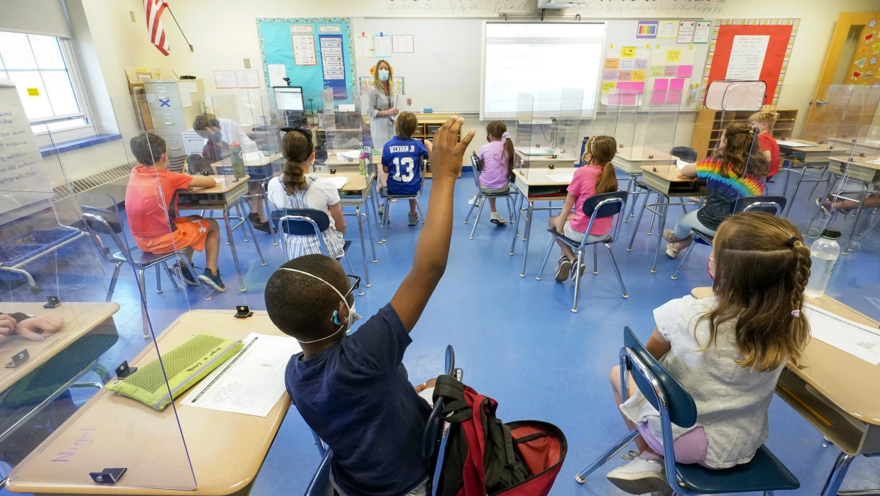Florida has become the latest state to ban the teaching of Critical Race Theory in schools.
“It’s offensive to the taxpayer that they would be asked to fund Critical Race Theory. That they would be asked to fund teaching kids to hate their country and hate each other,” said Governor Ron DeSantis speaking to a group of supporters last month about Critical Race Theory, a concept from the 1970s that has suddenly gotten the attention of legislators in many conservative states and school districts. “I think it will cause people to think of themselves more as a member of a particular race or based on skin color rather than based on the content of their character and based on their hard work and what they’re trying to accomplish in life.”
This month, while not specifically mentioning critical race theory, the Florida Board of Education voted 8-0 to effectively ban the theory from being taught to the more than 2.8 million children enrolled in Florida public schools.
Critical Race Theory is not new. According to Rosalind Fisher, an instructor of Sociology at the University of West Florida, it started over four decades ago and was used by legal scholars “To address some inequities that existed in the law. Particularly, people were looking at issues like how the law was being applied in criminal cases, but also in equal opportunity cases. Brown vs Board of Education was one of the signature examples of critical race theory being applied.”
Fisher says there are five main principles in critical race theory. One is that race is a social construction and not biological.
“The second main principle is the acknowledgment that race is a normal feature of society and that it’s embedded in many of our public policies, systems, and institutions. So race is not just about one person having a prejudice against another person. It is really the idea that racist incidents are not just random aberrations, but actually manifestations of structural and systemic racism.”
Similarly, Fisher says the third principle of critical race theory is rejecting the notion that racism is just the problem of a few bad apples.
“Actually we all have our cultural baggage, and I’m very careful to tell my students that. And to tell them that although I like to think of myself as being progressive and open-minded, that I recognize that even the materials that I choose to teach them with are chosen with my biases. Therefore it’s important for them to do a little research on their own, and for them to interrogate those materials along with me as we go through the course.”
The final two principles are that reactions to racism are not just emotional responses by those being discriminated against but actual of societal patterns of behavior.
And that change requires action. “That we cannot have change without actually discussing inequalities, issues of race, and social justice. That we have to be willing to actually act. That critical race theory isn’t a noun, it’s a verb. It requires action.”

One of the many criticisms of critical race theory is that pointing out systemic racism against people of color is in itself racist. Fisher rejects that charge.
“No. Critical race theory really focuses on policy, and how we’ve created systems that have racism and inequality in them and they’ve become invisible to us. Particularly if they don’t negatively impact us. And so it’s not really about blaming any particular group, it’s about looking at how we can make a change in a society that has, as its foundation, racial inequality.”
During the current political debate about CRT, some have taken the term critical race theory and are using it to describe all diversity and inclusion efforts.
“Actually some critical race theorists criticize diversity training) because they say it focuses on individual change, and it focuses on organizational change in a very limited way. That it doesn’t look at systemic inequality, and it does not look at the bigger picture of policy change. And that it actually avoids the elements of politics that are a factor in the existence of systemic racism.”
One more topic that is getting a lot of play in the media is the charge that teaching critical race theory is indoctrinating students to a certain ideology.
“I don’t think I have that superpower. And I’m not sure I would want to have it because I like to hear opposing viewpoints from my students because I learn things. And because I realize that I have biases too. And that I have some areas of blindness because when I walk out the door I know I’m a black woman of a certain age and all of these things impact the way the world treats me. Well (my students) are walking out the door as something too. I think that education should, at its best, help people understand (the different experiences of people in the world.)”
“I don’t think critical race theory is for little kids. I think it’s a little too much for them. But high school students could get it, and I think it might be important for them to be able to get it. Definitely college students should get it. And the little I’ve talked to my students about this, they’ve said ‘Wow, I wish I’d have known this before. Why didn’t anybody ever talk about this?’ So, it’s not my intention to indoctrinate so much as it is to inform.”


